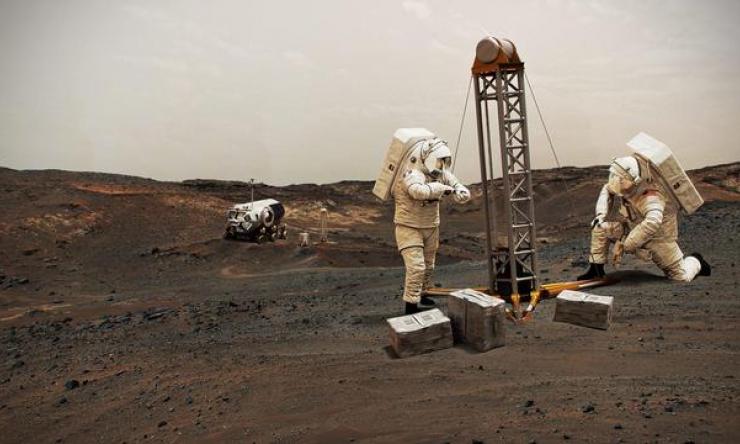Space Health Institute Seeks to Safeguard Astronaut Health through Control of Metabolism and Homeostasis
The Translational Research Institute for Space Health (TRISH) at Baylor College of Medicine is seeking research proposals with emerging scientific and biomedical advances, disruptive technologies, and new therapies and engineering capabilities with the potential to protect health in deep space.
TRISH seeks and funds high-risk, high-reward and creative solutions that can be used to protect astronauts on long duration exploration missions. With this solicitation, TRISH is seeking novel research and multi-disciplinary approaches to reduce health risks through manipulation of human metabolism and homeostasis at the cellular or whole organism level.
Modifying metabolic and homeostatic processes has the potential to reduce the necessary supplies and outputs of crewed missions in the highly resource-constrained environment of deep space. This strategy may also mitigate maladaptive processes the body undergoes in microgravity such as muscle and bone loss, or reduce tissue damage as a result of space radiation exposure. TRISH seeks to examine the feasibility of this method by awarding proof-of-concept grants to projects that assess the risks and potential benefits of these types of approaches.
The solicitation is available online here. The Step-1 proposals are due on Dec. 21, 2020 by 5 p.m. EST. Step-2 proposals from selected investigations will be due on March 30, 2021. Selections will be announced in August 2021.
As a partner to the NASA Human Research Program, TRISH helps solve the health challenges to human deep space exploration. The Institute finds and funds disruptive, breakthrough research and technologies that can reduce risks to astronaut health and performance.
The Institute is dedicated to connecting new researchers to collaborate with NASA.
The Institute is funded through a cooperative agreement with NASA to Baylor College of Medicine and includes consortium partners Caltech and Massachusetts Institute of Technology.
Sign up online to be notified of future TRISH solicitation announcements.











